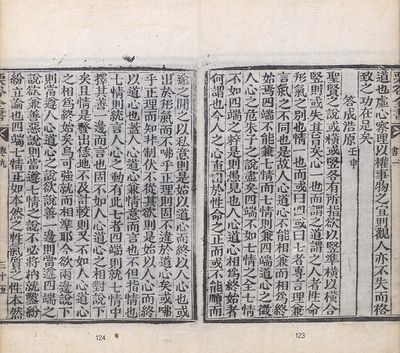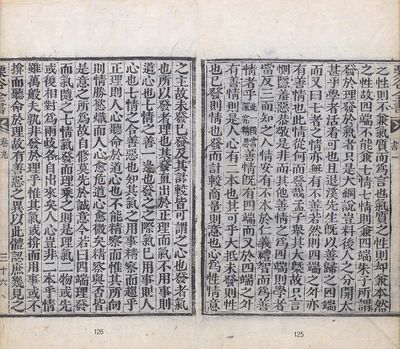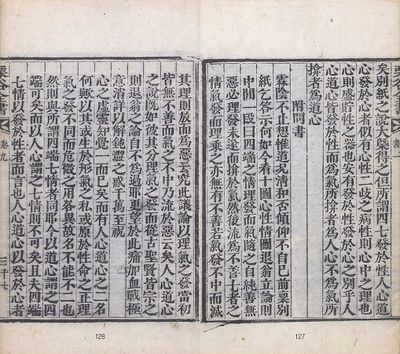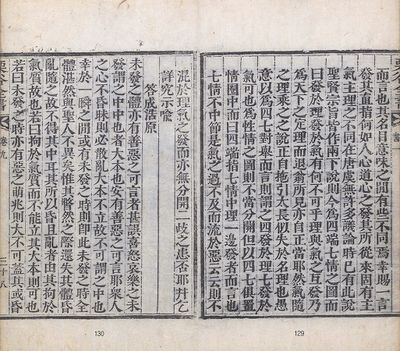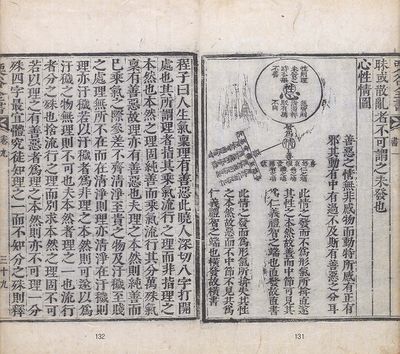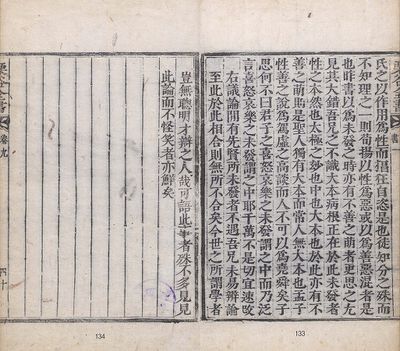(Translation) 李珥 答成浩原(壬申)
| Primary Source | ||
|---|---|---|
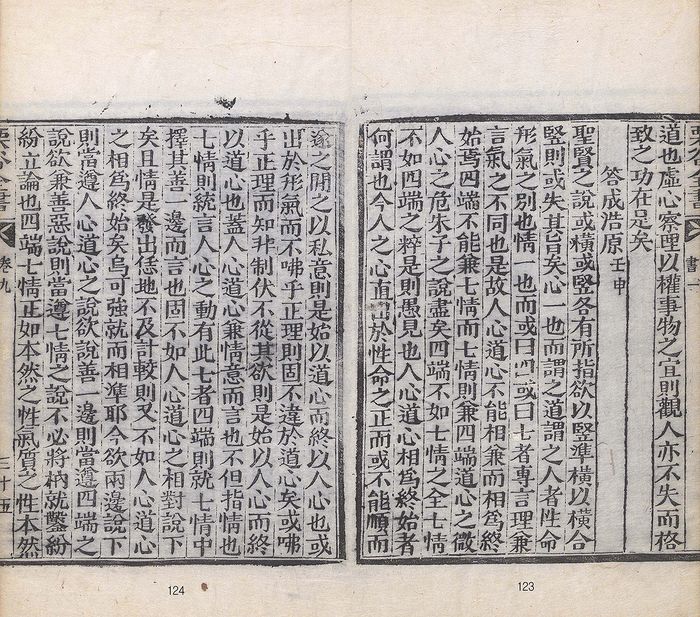 |
Title | |
| English | ||
| Chinese | 李珥 答 成浩原(壬申) | |
| Korean(RR) | 이이 답 성호원(임신)(Yi I Dap SeongHowon(Imsin)) | |
| Text Details | ||
| Genre | Literati Writings | |
| Type | Letter | |
| Author(s) | 李珥 | |
| Year | 1572 | |
| Source | IMG. Korean National Assembly Library (국회전자도서관)
TXT. Korean Classics and Literati's Collection of Writings (한국고전종합DB) | |
| Key Concepts | ||
| Translation Info | ||
| Translator(s) | Participants of 2019 JSG Summer Hanmun Workshop (Advanced Translation Group) | |
| Editor(s) | ||
| Year | 2019 | |
목차
- 1 Introduction
- 2 Original Script
- 3 Discussion Questions
- 4 Further Readings
- 5 References
- 6 Translation
- 6.1 (sample) : Jaeyoon Song
- 6.2 Student 1 : (Write your name)
- 6.3 Student 2 : (Write your name)
- 6.4 Student 3 : (Write your name)
- 6.5 Student 4 : King Kwong Wong
- 6.6 Student 5 : (Write your name)
- 6.7 Student 6 : (Write your name)
- 6.8 Student 7 : (Write your name)
- 6.9 Student 8 : Q
- 6.10 Student 9 : (Write your name)
- 6.11 Student 10 : Yeonjae Ra
- 6.12 Student 11 : (Write your name)
- 6.13 Student 12 : (Write your name)
- 6.14 Student 13 : (Write your name)
- 6.15 Student 14 : (Write your name)
Introduction
Original Script
Discussion Questions
Further Readings
References
Translation
(sample) : Jaeyoon Song
- Discussion Questions:
Student 1 : (Write your name)
- Discussion Questions:
聖賢之說。或橫或豎。各有所指。欲以豎準橫。以橫合豎。則或失其旨矣。心一也而謂之道謂之人者。性命形氣之別也。情一也而或曰四或曰七者。專言理兼言氣之不同也。是故。人心道心。不能相兼而相爲終始焉。四端不能兼七情。而七情則兼四端。道心之微。人心之危。朱子之說盡矣。四端不如七情之全。七情不如四端之粹。是則愚見也。
Student 2 : (Write your name)
- Discussion Questions:
人心道心。相爲終始者。何謂也。今人之心。直出於性命之正。而或不能順而遂之。閒之以私意。則是始以道心。而終以人心也。或出於形氣。而不咈乎正理。則固不違於道心矣。或咈乎正理。而知非制伏。不從其欲。則是始以人心。而終以道心也。蓋人心道心。兼情意而言也。不但指情也。七情則統言人心之動。
Student 3 : (Write your name)
- Discussion Questions:
有此七者。四端則就七情中擇其善一邊而言也。固不如人心道心之相對說下矣。且情是發出恁地。不及計較。則又不如人心道心之相爲終始矣。烏可强就而相準耶。今欲兩邊說下。則當遵人心道心之說。欲說善一邊。則當遵四端之說。欲兼善惡說。則當遵七情之說。不必將枘就鑿。紛紛立論也。四端七情。正如本然之性氣質之性。本然之性。則不兼氣質而爲言也。氣質之性。則却兼本然之性。故四端不能兼七情。七情則兼四端。
Student 4 : King Kwong Wong
- Discussion Questions:
朱子所謂發於理發於氣者。只是大綱說。豈料後人之分開太甚乎。學者活看可也。且退溪先生旣以善歸之四端。而又曰。七者之情。亦無有不善。若然則四端之外。亦有善情也。此情從何而發哉。孟子擧其大槪。故只言惻隱羞惡恭敬是非。而其他善情之爲四端。則學者當反三而知之。人情安有不本於仁義禮智而爲善情者乎。此一段當深究精思 善情旣有四端。而又於四端之外有善情。則是人心有二本也。其可乎。
That which Master Zhu called aroused from the Principle and aroused from the Material Force are just general outlines. Unexpectedly, later people divide them too much. It is appropriate that scholars actively read them. Moreover, Mister T'oegye (Toegye) reduces goodness to the Four Beginnings. And yet he also says that among the Seven Sentiments there does not exist something not good. If so, then outside of the Four Beginnings there also exist good sentiments.
Student 5 : (Write your name)
- Discussion Questions:
大抵未發則性也。已發則情也。發而計較商量則意也。心爲性情意之主。故未發已發及其計較。皆可謂之心也。發者氣也。所以發者理也。其發直出於正理而氣不用事則道心也。七情之善一邊也。發之之際。氣已用事則人心也。七情之合善惡也。知其氣之用事。精察而趨乎正理。則人心聽命於道心也。不能精察而惟其所向。則情勝慾熾。而人心愈危。道心愈微矣。精察與否。皆是意之所爲。故自修莫先於誠意。今若曰四端理發而氣隨之。
Student 6 : (Write your name)
- Discussion Questions:
七情氣發而理乘之。則是理氣二物。或先或後。相對爲兩岐。各自出來矣。人心豈非二本乎。情雖萬般。夫孰非發於理乎。惟其氣或揜而用事。或不揜而聽命於理。故有善惡之異。以此體認。庶幾見之矣。別紙之說。大槪得之。但所謂四七發於性。人心道心發於心者。似有心性二岐之病。性則心中之理也。心則盛貯性之器也。安有發於性發於心之別乎。人心道心皆發於性。而爲氣所揜者爲人心。不爲氣所揜者爲道心。
Student 7 : (Write your name)
- Discussion Questions:
心性情圖
程子曰。人生氣稟。理有善惡。此曉人深切。八字打開處也。其所謂理者。指其乘氣流行之理。而非指理之本然也。本然之理固純善。而乘氣流行。其分萬殊。氣稟有善惡。故理亦有善惡也。夫理之本然。則純善而已。乘氣之際。參差不齊。淸淨至貴之物及汚穢至賤之處。理無所不在。而在淸淨則理亦淸淨。在汚穢則理亦汚穢。若以汚穢者爲非理之本然則可。遂以爲汚穢之物無理則不可也。夫本然者。理之一也。流行者。分之殊也。
Diagram of Heart, Nature, and Sentiment
Master Cheng said: "Human life is endowed with material force. Principle has good and evil." This penetrates deeply into man(?). The Eight Characters unfold this place(??). What is called principle, is the principle which rides on qi and spreads(?). It does not refer to li zhi benran. benran zhi li is originally pure and good, and it rides on qi and spreads(?). It splits into ten thousand different parts. The endowed qi has good and evil; therefore principle also has good and evil. Of course li zhi benran is purely good, and nothing else. The limit(?) of riding on qi uneven The peaceful arrives at worthy things, and the foul arrives at lowly places. [Yet] there is nowhere that principle is not. So, when it is in the peaceful, principle is also peaceful. When it is in the foul, principle is also foul. It is like using the foul to ???, then ?? foul things ???. The root is one with principle; what spreads is the many parts.
Student 8 : Q
- Discussion Questions:
捨流行之理。而別求本然之理。固不可。若以理之有善惡者。爲理之本然則亦不可。理一分殊四字。最宜體究。徒知理之一而不知分之殊。則氏之以作用爲性而猖狂自恣是也。徒知分之殊而不知理之一。則荀,揚以性爲惡。或以爲善惡混者。是也。昨書以爲未發之時。亦有不善之萌者。更思之。尤見其大錯。吾兄之不識大本。病根正在於此。
This is neglecting the principle whose flows and goings manifest in actuality and seeking an innate principle instead.
Student 9 : (Write your name)
- Discussion Questions:
未發者。性之本然也。太極之妙也。中也。大本也。於此亦有不善之萌。則是聖人獨有大本。而常人無大本也。孟子性善之說。爲駕虛之高談。而人不可以爲堯舜矣。子思何不曰君子之喜怒哀樂之未發謂之中。而乃泛言喜怒哀樂之未發謂之中耶。
Student 10 : Yeonjae Ra
- Discussion Questions:
千萬不是。切宜速改。 右議論閒有先賢所未發者。不遇吾兄。未易辨論至此。於此相合。則無所不合矣。今世之所謂學者。豈無聰明才辯之人哉。可語此事者。殊不多見。見此論而不怪笑者。亦鮮矣。
I think this statement is utterly unreasonable, so (you) should correct it as fast. The discuss argued on the right side(of the letter) has unrevealed thing by ancient sages. If we haven’t met you before, it would not be easy to give discriminating consideration to this. If to this matches each other, there is nothing could not be matched. Nowadays among so called scholars, how there is no one who are not be intelligent and talented? (However) those who can refer to this things, we could not discover them in many ways. Also, there would be rare person those who are not laughing weirdly at this discussion.
Student 11 : (Write your name)
- Discussion Questions:
Student 12 : (Write your name)
- Discussion Questions:
Student 13 : (Write your name)
- Discussion Questions:
Student 14 : (Write your name)
- Discussion Questions:
